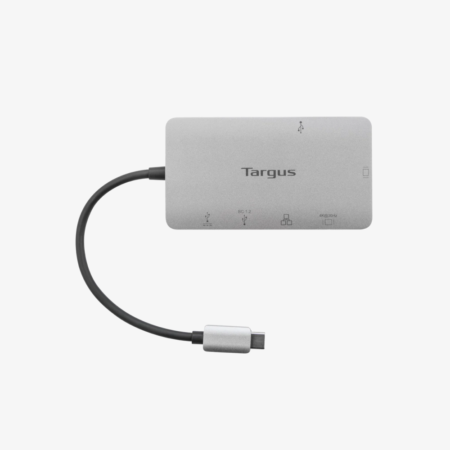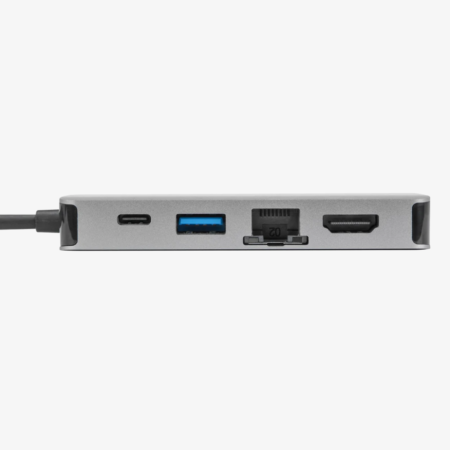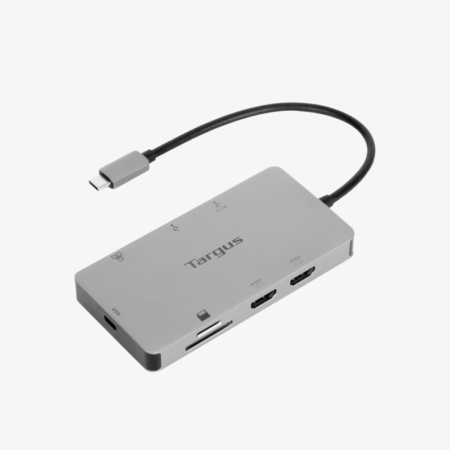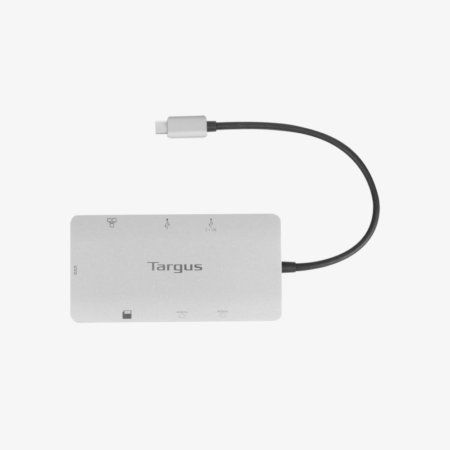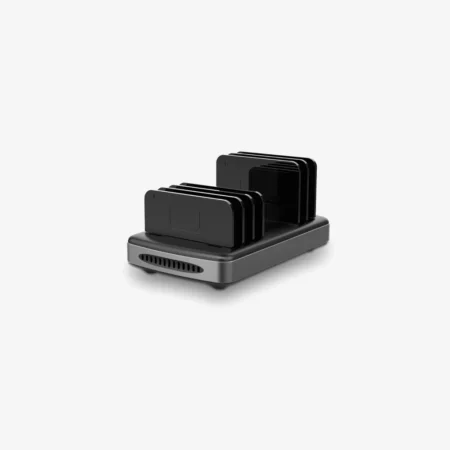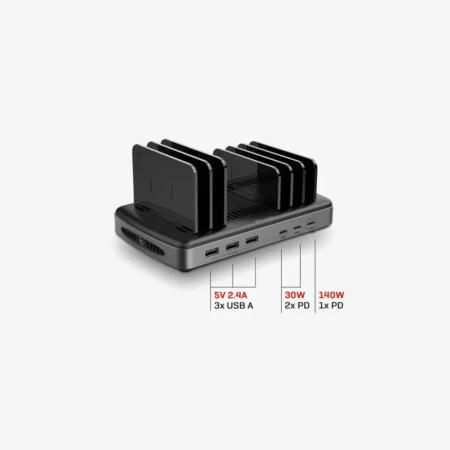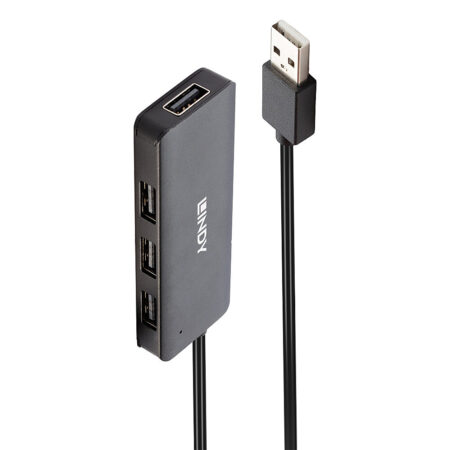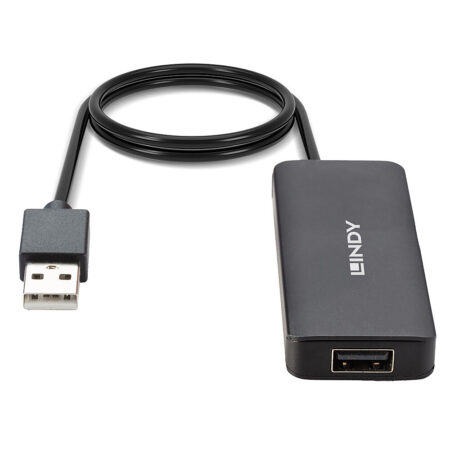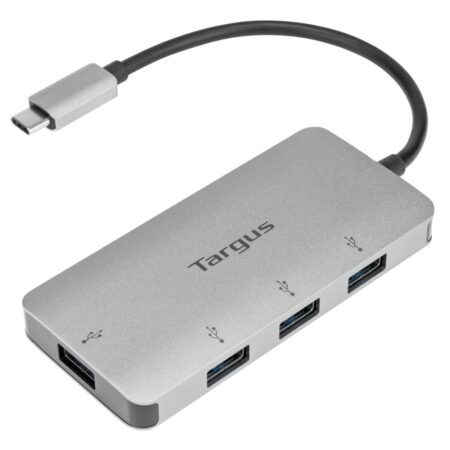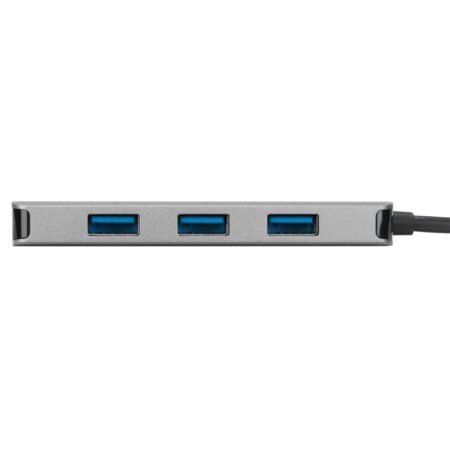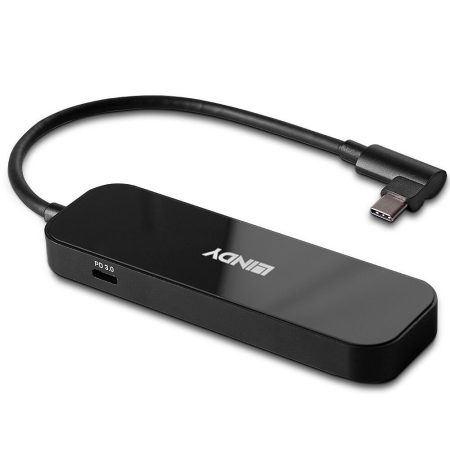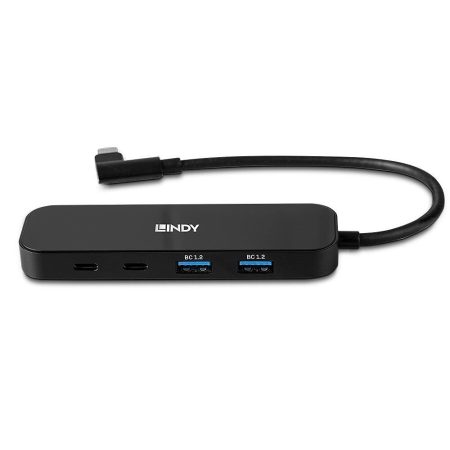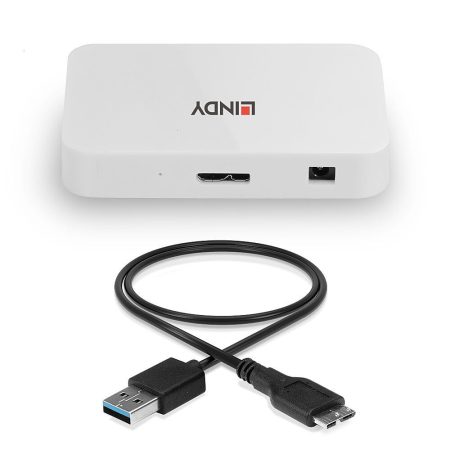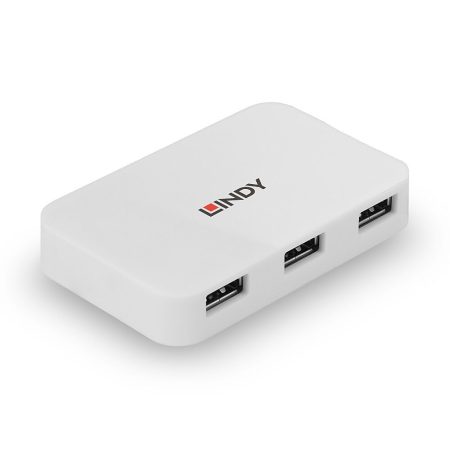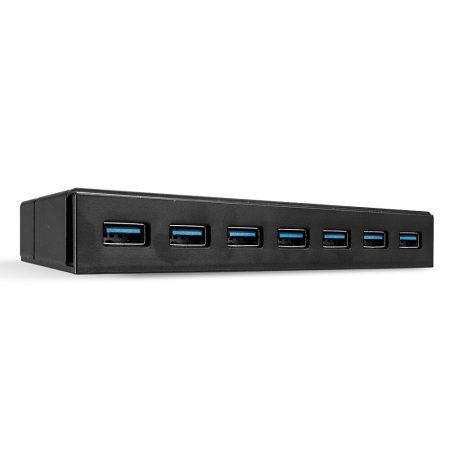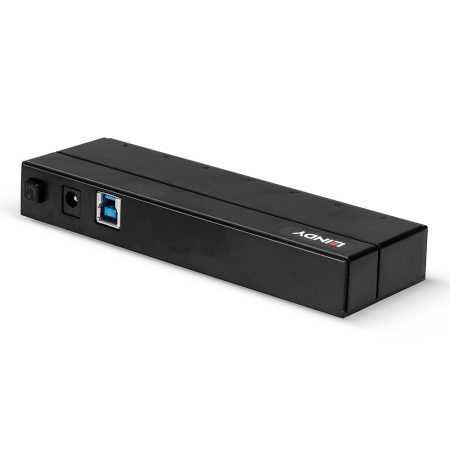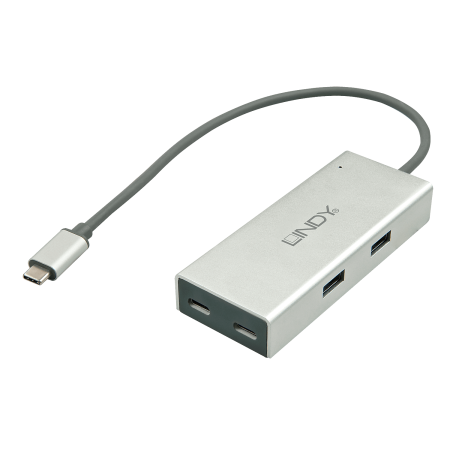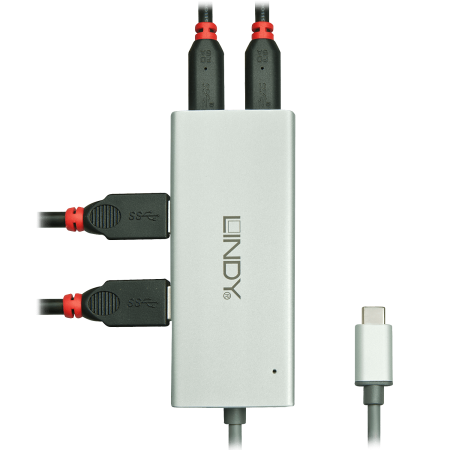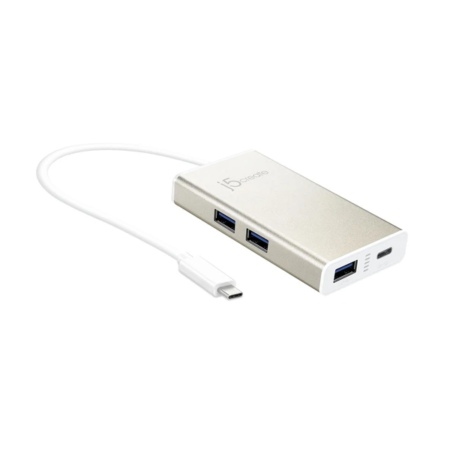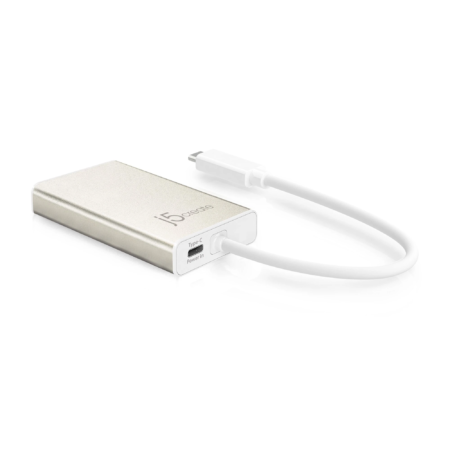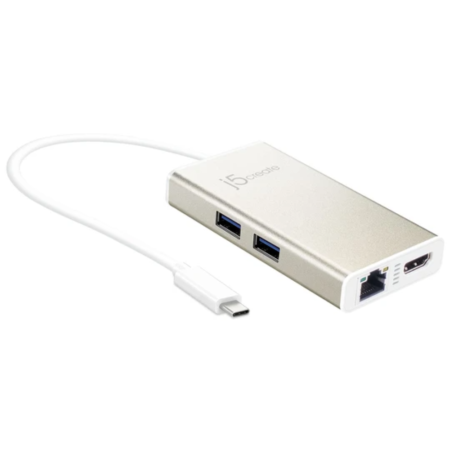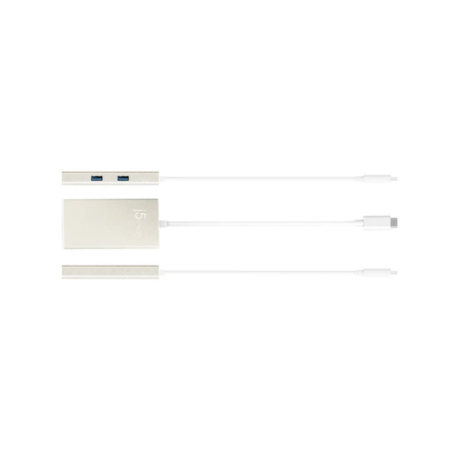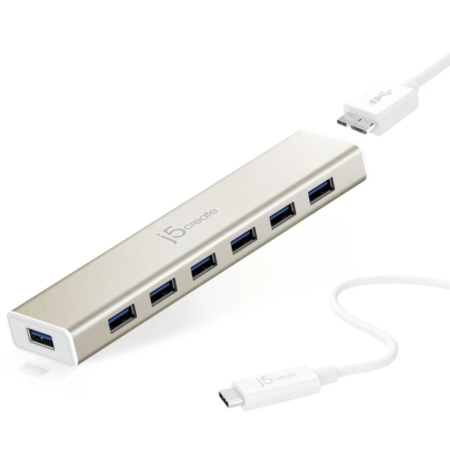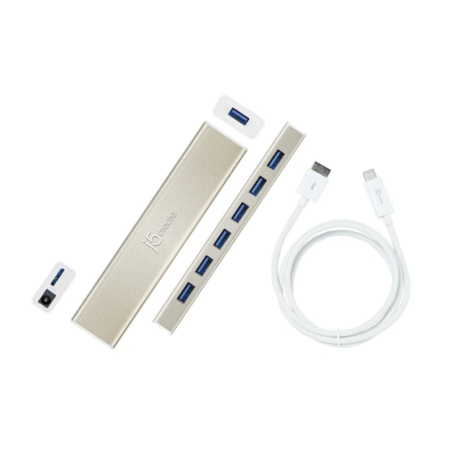Targus USB-C DP Alt Mode Single Video 4K HDMI/VGA Docking Station with 100W PD Pass-Thru – DOCK419EUZ
Universal USB-C® Single Video 4K HDMI/VGA Dock w 100 W PD Power Pass-Thru…
Targus USB-C Dual HDMI 4K Docking Station with 100W PD Pass-Thru – DOCK423EU
Universal USB-C® Dual HDMI 4K Dock w 100 W PD Pass-Thru - For MST enabled devices…
LINDY 160W 6 PORT USB CHARGING STATION – 73436
160W 6 Port USB Charging Station…
Targus ACH226EU USB-C to 4-Port USB-A Hub
Turn one USB-C port into four USB-A 3.0 ports with the Targus ACH226EU USB-C to 4-Port USB-A Hub.…
Lindy 4 Port USB Type C Hub 43324 (USB 3.0)/ 43325 (USB 3.2)
4 Port USB 3.0 Hub…
j5create JCH346 USB-C 4-Port Hub USB-A/USB-C/PD 2.0
j5create JCH346 USB-C 4-Port Hub lets you add a USB-C port and 3 USB Type-A ports to your laptop, with support for USB power delivery…
j5create JCA374 USB-C to HDMI/G Ethernet/USB
j5create JCA374 allows you to add two additional USB™ peripherals, a 4K or 1080p HDMI™ display, and Gigabit Ethernet through your USB-C® port…
j5create JCH377 USB TYPE-C 3.0 7-Port Hub
j5create JCH377 is a USB-C™ 7-port Hub that turns a single USB™ port into seven USB™ Type-A ports and features a compact design so you…
Hubs
Many laptop and PC manufacturers today, to reduce their units’ dimensions and weight, provide a much lesser number of USB ports in their devices. In such cases, there’s a risk of users running out of ports to connect multiple gadgets. This is where an external USB hub can come to your rescue. USB (Universal Serial Bus) hubs are external devices that can extend a single USB port on your laptop or desktop to two, four, or even ten additional ports. USB laptop hubs help connect multiple peripherals to your laptop, such as keyboards and mice, external USB hard drives, monitors, and webcams. Many USB hubs also have the ability to connect to other standards, such as HDMI for displays and Ethernet for the internet.Features to look for when buying a hub
There are multiple features one needs to consider while looking for the “ideal hub,” as the selection of these devices is subject to an individual’s specific requirements. However, listed below are some common factors most people check while choosing hubs:- Connection to host: USB hubs come with different connectors, such as USB-A, USB-B, and USB-C, and your electronic gadget needs to have a compatible port for the hub to connect to your main device. Many laptops come with only USB-C ports; in that case, you need to invest in a USB-C hub.
- Number of output ports: Before buying a USB hub, you need to make sure of the number of devices you need to attach to it. Then, check if the hub comes with the number of ports you require to connect to your device.
- Transfer speed: Different users operate devices that need to operate at different data transfer speeds, so before making the purchase, you need to make sure the hub supports the USB standard required for your devices. The most common standards are USB 2.0, USB 3.0, and USB-C.
- OS Compatibility: Ensure that the hub is compatible with your laptop's operating system and the devices you plan to connect. Some hubs are solely designed for Mac or Windows systems, so it is essential to check compatibility.
- Size and design: Some hubs are designed to be compact and portable, while others are designed to sit on a desk. Consider the size and design of the hub to ensure that it fits well with your laptop setup and portability needs.
- Power delivery: If you plan to connect power-hungry devices such as external hard drives or graphics cards, make sure the hub has enough power delivery to support these devices. A powered USB hub typically offers up to 100W of charging power, which is enough to charge a laptop.
- Price: Determine your budget for the hub and compare prices across different brands and models to find the best value for your needs.


